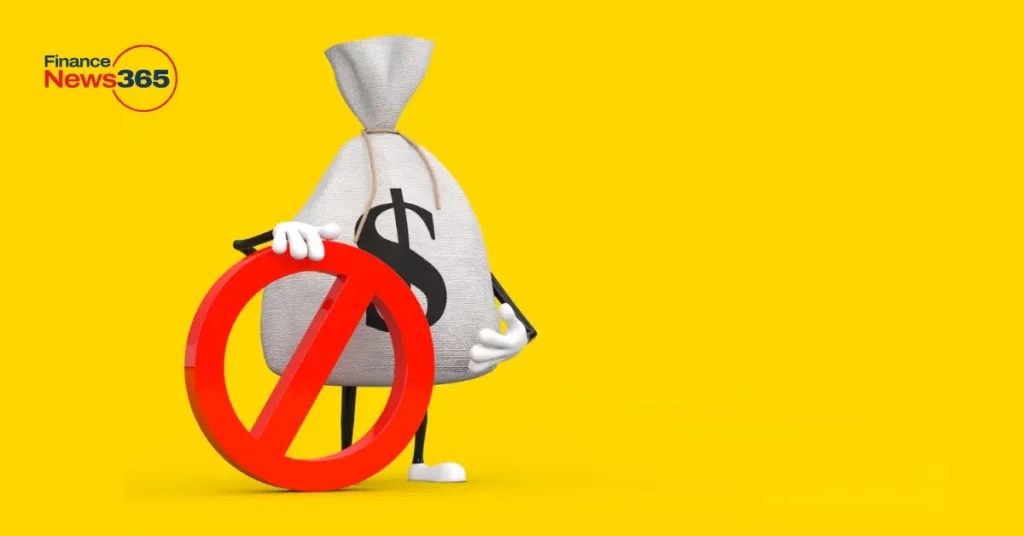
Understanding Personal Finance Impacts of Default
Just how severe can the impacts of loan default be on your finances? Discover the hidden consequences that could affect your future.


Defaulting on a loan seriously impacts your future borrowing choices mainly because it harms your credit score. When you default, lenders view you as a higher risk, limiting your options and often leading to higher interest rates on future loans. Your payment history, an essential factor in credit scoring, suffers, and records of defaults can remain on your credit report for up to seven years. This creates trust issues between you and lenders, who may impose stricter terms and conditions. Understanding these consequences can help you make informed financial decisions and improve your borrowing prospects further down the line.

Understanding loan default can feel overwhelming, especially when you’re trying to maneuver through the complexities of borrowing. Default occurs when a borrower fails to meet the legal obligations or conditions of a loan, which can stem from various default causes. For instance, loss of income, unexpected medical expenses, or poor financial planning can lead to missed payments.
It’s essential to recognize that borrower behavior plays a significant role in these situations. When individuals prioritize short-term expenses over long-term financial commitments, they may unintentionally set themselves up for default.
Additionally, a lack of understanding about loan terms can contribute to this issue. Borrowers might underestimate the importance of managing their debt or fail to recognize the potential consequences of late payments.
By improving financial literacy and adopting better budgeting practices, you can reduce your risk of default. Observing patterns in borrower behavior can also offer insights into how to manage finances more effectively.
Ultimately, being proactive about your financial health helps build a foundation for responsible borrowing, reducing the likelihood of encountering default in the first place. Awareness and informed decision-making are key in maneuvering the world of loans successfully.
When you default on a loan, you’ll likely see significant damage to your credit score, which can impact your financial future.
This decline in your credit score can limit your options for securing loans in the future, making it harder to obtain credit when you really need it.
Understanding these immediate consequences is essential for making informed borrowing choices moving forward.
Defaulting on a loan can wreak havoc on your credit score, leading to immediate and long-lasting consequences. When you miss payments or fail to repay a debt, it negatively affects your repayment history, which is a vital factor in determining your credit score. A poor repayment history signals to lenders that you’re a risky borrower, making them less likely to extend credit to you in the future.
Additionally, defaulting can impact your credit utilization ratio, which compares your total credit card balances to your total credit limits. A higher utilization ratio indicates you’re using a larger portion of your available credit, further damaging your score. This combination of factors can lead to a significant drop in your credit score, often by 100 points or more.
The aftermath of default isn’t just a temporary setback; it can linger on your credit report for years. Even after you’ve recovered financially, the damage done can make it difficult for you to secure loans, credit cards, or favorable interest rates.
Understanding these immediate consequences highlights how essential it’s to manage your debts responsibly to maintain a healthy credit profile.
A damaged credit score can severely limit your loan options after a default. When you’ve missed payments or defaulted on a loan, lenders see you as a higher risk. This perception leads to significant borrowing restrictions. You might find that many traditional lenders are unwilling to work with you, resulting in limited credit options available for your future borrowing needs.
Even if you manage to find a lender willing to provide a loan, you’ll likely face higher interest rates and less favorable terms. This situation can make it challenging to secure essential loans, such as those for a car or a home. Additionally, some lenders may only offer secured loans, which require collateral, making it even more difficult to borrow.
In many cases, your choices may be further narrowed to credit cards designed for individuals with poor credit. These often come with high fees and interest rates that can lead to a cycle of debt.
As you navigate this landscape, understanding these limited credit options is vital. By doing so, you can begin to plan your financial recovery and work towards rebuilding your creditworthiness over time.
Your credit score can take a significant hit if you default on a loan. When you miss payments or fail to repay a loan altogether, your payment history suffers, which is one of the most critical factors in calculating your credit score. A single default can lead to a drop of several points, putting you in a lower credit tier. This not only affects your ability to secure loans in the future but also impacts the interest rates you’ll be offered.
Moreover, defaulting can negatively influence your credit utilization ratio. This ratio measures how much credit you’re using compared to your total available credit.
If you default, lenders may reduce your credit limit, increasing your utilization ratio, which further lowers your score. A higher ratio signals to lenders that you’re a riskier borrower, making it even more challenging to obtain credit in the future.
When you think about future loan eligibility, it’s crucial to understand how your credit score impacts your options.
A low score can lead to trust issues with lenders, making them hesitant to approve your loan applications.
Additionally, you might face higher interest rates, which can greatly affect your overall borrowing costs.
Defaulting on a loan can greatly impact your credit score, often leading to long-lasting consequences for future borrowing options. When you default, your credit utilization ratio increases, signaling to lenders that you may struggle with debt management. This change affects your overall credit profile, which lenders assess during the risk assessment phase of loan applications. Consequently, your borrowing behavior may be scrutinized more closely.
To improve your situation, consider creating effective budgeting strategies and exploring repayment plans that can help you regain control over your finances. Engaging in credit counseling can provide valuable insights into managing your debt to income ratio and enhancing your financial literacy. This knowledge allows you to make informed decisions about your borrowing options.
Remember that a lower credit score can hinder your ability to secure loans, as lenders may view you as a higher risk. As you work on improving your credit, maintaining a consistent payment history and reducing outstanding debts will be essential in restoring your eligibility for future loans.
One notable consequence of defaulting on a loan is the erosion of trust between you and potential lenders. When you default, lenders often alter their perceptions of your reliability as a borrower. They see your past behavior as a predictor of future actions, leading them to question your ability to repay loans. This skepticism can greatly impact your eligibility for future loans.
Lenders may interpret your default as a sign of irresponsibility or financial instability. Consequently, they might hesitate to approve your loan applications, fearing that you may repeat the same behavior. Even if your financial situation improves, you might still face challenges in securing a loan due to these negative perceptions.
Your history of default can lead to stricter scrutiny of your future borrowing requests. Lenders may require additional documentation, higher credit scores, or even collateral to mitigate their risk.
As you navigate this landscape, it’s important to understand how your past borrower behavior shapes lender trust issues. Rebuilding this trust takes time and consistent financial responsibility, but it’s vital for regaining access to favorable loan terms in the future.
Interest rates play an essential role in determining your future loan eligibility, especially after a default. When you default on a loan, lenders often view you as a higher risk, leading to potential interest rate fluctuations that can considerably impact your future borrowing behavior. Higher interest rates can make loans more expensive, which might discourage you from applying for credit altogether.
After a default, lenders may increase the interest rates they offer you, reflecting their concern over your past repayment issues. This increase can affect not only personal loans but also mortgages and credit cards. If you’re seeking a loan after a default, you’ll likely face not only higher rates but also stricter eligibility criteria. Consequently, it’s vital to understand how your credit history influences these rates.
To improve your chances of securing a loan at a more favorable interest rate, focus on rebuilding your credit score. This can involve timely payments on existing debts, maintaining low credit utilization, and avoiding new defaults.
Numerous types of loans can be impacted by default, each with its own set of consequences. For instance, personal loans often require a good credit score, and defaulting can severely damage yours, making future borrowing difficult.
Mortgage loans are similarly affected; a default can lead to foreclosure, which drastically hinders your ability to obtain a home loan in the future.
Student loans, whether they’re government loans or private, can also create long-lasting issues if you default. If you fall behind on auto loans, you risk losing your vehicle, and future auto financing may become nearly impossible.
Payday loans, known for their high interest, can trap borrowers; defaulting on these can lead to legal complications.
In the sector of business loans, defaulting can’t only impact your personal credit but also the financial health of your business.
Secured loans, which are backed by collateral, may result in losing that collateral upon default. Unsecured loans, on the other hand, can lead to aggressive collection tactics.
Even peer-to-peer loans are affected, as default can damage your reputation with potential lenders. Understanding these consequences is vital for making informed financial decisions.
When you consider borrowing after a default, understanding interest rates and terms becomes essential. After a default, lenders often view you as a higher risk, which can lead to significant interest rate fluctuations. You might find that the rates offered are much higher than what you experienced before defaulting. This increase in rates means that any new loan will cost you more over time, impacting your financial decisions.
Moreover, loan term variations can also affect your borrowing choices. Lenders may offer shorter loan terms to mitigate their risk, which can result in higher monthly payments. While a shorter term might help you pay off the loan faster, it can strain your budget.
On the other hand, if you’re offered a longer loan term, you may enjoy lower monthly payments, but you’ll end up paying more in interest over the life of the loan.
Understanding these dynamics is important. You need to factor in how interest rates and loan terms will affect your overall financial picture, ensuring that you make informed decisions that align with your long-term goals.
A default record can linger on your credit report for several years, typically lasting about seven years for most types of loans. This length duration affects your ability to secure future financing.
Lenders often view a default record as a significant red flag, indicating that you may have struggled to meet repayment obligations in the past. As a result, your creditworthiness can suffer, leading to higher interest rates or even outright rejections for new loans.
Record retention policies vary among different credit bureaus, but generally, they hold onto your default records for that seven-year period. During this time, any potential lenders can see this information, which heavily influences their decision-making process.
Even after the record is removed, the impact of a default can linger in your financial history, as it may take time to rebuild trust with lenders and improve your credit score.
Understanding the implications of a default record is essential for your financial planning. Taking proactive steps to manage your credit responsibly can help mitigate the negative effects of a past default, allowing you to regain access to better borrowing options in the future.
For those facing challenges with traditional lending due to a default record, alternative lending options can provide a much-needed lifeline. You might consider peer-to-peer lending, where individuals lend money to each other, often at more flexible terms.
Microfinance options cater to those in need of smaller amounts, focusing on community support and development. Credit unions are another great alternative; they often offer competitive rates and a more personal touch compared to banks.
Payday alternatives provide quick access to cash without the high fees associated with traditional payday loans. Community lending programs focus on helping local residents by offering favorable terms.
Online lenders have emerged as a popular choice, often utilizing alternative credit scoring methods to evaluate your creditworthiness, making it easier to secure personal loans, installment loans, or even secured loans.
These loans can help you meet immediate financial needs while building a better borrowing history. By exploring these alternative options, you can find a solution that fits your situation, allowing you to regain financial stability and work towards your goals.
Rebuilding your credit after a default is essential for regaining financial stability.
You’ll need to understand how credit scores work, adopt effective repayment strategies, and focus on building a positive credit history.
Each step you take can greatly impact your ability to secure loans in the future.
Credit scores play an essential role in your financial health, especially after experiencing a default. These scores are influenced by various factors, including payment history, which accounts for a significant portion of your score. If you’ve defaulted, your past payment behavior may negatively impact your score, making it vital to focus on improving it.
Credit utilization, or how much of your available credit you’re using, also affects your score. Keeping this ratio low demonstrates responsible debt management. Regularly monitoring your credit can help you track changes and adjust your borrowing behavior accordingly.
Moreover, credit inquiries—when lenders check your credit—can influence your score. Limiting these inquiries is a smart move when trying to rebuild your credit. Understanding different loan types and their specific interest calculations can also guide your borrowing decisions.
Enhancing your financial literacy is key. By learning about risk assessment and how lenders evaluate your creditworthiness, you can make informed choices moving forward.
Ultimately, by focusing on these factors and regularly monitoring your credit, you’ll be better positioned to recover from a default and achieve your financial goals.
After a default, implementing effective repayment strategies is vital to regaining control of your financial future. Start by evaluating your financial situation, focusing on debt management and your overall budget.
Use budgeting techniques to track your income and expenses, guaranteeing you allocate funds towards your debts. Consider creating a repayment plan that prioritizes high-interest debts first, which can help reduce the total interest you’ll pay over time.
Loan consolidation might be an option for simplifying your payments by merging multiple debts into one. Additionally, establish an emergency fund to cover unexpected expenses, so you don’t rely on credit again.
Seeking credit counseling can provide personalized guidance tailored to your situation, helping you develop negotiation strategies with creditors.
Don’t forget the importance of payment reminders. Setting these up can ensure you never miss a payment, which is essential for rebuilding your credit.
Familiarize yourself with interest calculations to understand how your repayments affect your overall debt. By focusing on these strategies, you can gradually restore your financial standing and pave the way for a healthier financial future.
A solid credit history is fundamental for your financial health, especially following a default. To rebuild your credit, focus on several key areas.
First, prioritize your payment history. Making timely payments on any existing debts or new credit accounts is imperative. This consistent behavior demonstrates responsible borrowing and will gradually improve your credit score.
Next, pay attention to your credit utilization. Aim to keep this ratio below 30% by managing your credit card balances effectively. This helps signal to lenders that you can handle debt responsibly. Additionally, limit the number of credit inquiries you make, as too many can negatively impact your score.
Engaging in effective debt management practices is essential. Consider creating a budget that incorporates long-term planning to guarantee you’re not only meeting current obligations but also preparing for future financial goals.
Lastly, seek out financial education resources. Understanding credit scores, the impact of debt, and best practices in credit management can empower you to make informed decisions moving forward.
To keep your financial future secure, it’s vital to understand how to prevent future defaults. Using effective default prevention strategies can greatly reduce your risk.
First, consider participating in borrower education programs that offer valuable insights into responsible borrowing practices. These programs often include financial literacy resources that empower you to make informed choices.
Establishing an emergency savings plan is another important step. This safety net guarantees you can cover unexpected expenses without relying solely on loans.
Additionally, mastering budgeting techniques helps you manage your income and expenses effectively, allowing you to allocate funds towards loan repayments.
Utilizing credit counseling services can also provide personalized guidance tailored to your financial situation. These services often introduce you to loan management tools that simplify tracking your debts and payments, ensuring you never miss a due date.
In conclusion, defaulting on a loan greatly impacts your future borrowing choices. It lowers your credit score, limits loan eligibility, and affects various types of loans. Default records can linger for several years, making it essential to explore alternative lending options and focus on rebuilding your credit. By taking proactive steps and understanding the consequences, you can prevent future defaults and improve your financial health, ensuring better access to credit opportunities down the line.

Just how severe can the impacts of loan default be on your finances? Discover the hidden consequences that could affect your future.

The consequences of defaulting on debt can be dire; discover how ignoring your obligations can spiral into legal chaos.

Bouncing back from a loan default can be challenging; discover how it impacts your credit score and what steps you can take to recover.

Find out essential steps to take after defaulting on debt that could pave your way to financial recovery and stability.